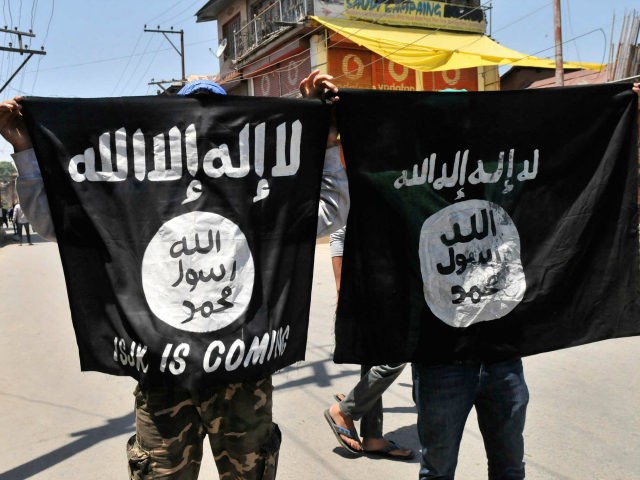Italian anti-drug units, over a 32-month period, intercepted 20 enormous freighters used to traffic a collective 280 tons of hashish valued at about $3.2 billion through territory near Libya believed to be controlled by the Islamic State (ISIS/ISIL), reports The New York Times (NYT).
Although they do not have any concrete evidence, authorities believe ISIS may be taxing drug traffickers to allow them to move their contraband through their territory. That is consistent with how Iran’s narco-terror proxy Hezbollah is taxing Latin American cartels to move drugs, people, and other contraband out of the Western Hemisphere and into Europe and the Middle East, through Africa.
NYT notes:
Investigators say they believe that at least in some cases, the terrorist group would have been able to exact a tax in return for the drugs’ passage. That matches the Islamic State’s business practice in its stronghold in Syria and Iraq, where according to one study by IHS Country Risk, 7 percent of the group’s revenue last year was from the production, taxation and trafficking of drugs.
But officials concede that they cannot be certain what role, if any, the Islamic State might play in the hashish shipments.
“No one has eyes on the ground to say that they know for a fact,” said Masood Karimipour, the United Nations Office on Drugs and Crime’s regional representative for the Middle East and North Africa. “What we can offer, or make a reasonable inferences from, is that where the terrorists are holding terrain they are controlling everything that goes through it, including the trafficking of whatever — whether it’s weapons or drugs.”
Italian investigators suspect that the movement of illicit drugs is part of a much bigger scheme, possibly involving weapons, according to the Times.
Although consuming and selling drugs is forbidden by Islam, other Islamic terrorists groups – namely Hezbollah, al Qaeda, and the Taliban – are involved in the lucrative business, sometimes cooperating with one another despite their Sunni-Shiite differences, some experts believe.
The first cargo with hashish on board was intercepted by the Italian authorities on April 12, 2013.
According to the Times, the “stash” investigators found on some of the 20 vessels were “many multiples larger than Italian officials had ever seen.”
“The Italian officials had stumbled on a lucrative new trafficking route that stretched far to the east along the coast of Northern Africa — and always led to Libya, in an area fought over by competing armed groups that included the Islamic State,” explains NYT.
“Once transported in on Jet Skis, hashish now travels to Europe on ships as long as a soccer field, through territory that officials fear is controlled by the Islamic State,” it adds.
Italian authorities believe hashish traffickers may be paying ISIS and perhaps other Islamic groups a form of tax to move their product through their territory. Until recently, ISIS had full control of the Libyan coastal city of Sirte, located only a few hundred miles from the coast of Europe.
The Times notes:
Italian drug investigators [are having] to start asking questions they never expected to confront: Could the Islamic State or some other group be profiting from the drug route by taxing it? Was the militant-driven chaos in Libya providing an opportunity by drug traffickers to pick a route the authorities wouldn’t suspect, or were the Libyan-based groups more directly involved? The investigation continues.
NYT notes:
Then the tips dried up, and the busts stopped. The Italian investigation, which had expanded to include other European countries and the United States Drug Enforcement Administration, has not seized any ships on the route in 2016, though officials say they believe the traffic continues.
Instead, as they have sought to understand what happens to the enormous shipments, they are struggling with a mystery that has prompted intriguing questions but offered few answers.
United Nations data suggests that ISIS may have been involved in the lucrative opium producing business in Afghanistan. The Afghan province they took over and turned into their primary stronghold, Nangarhar, is considered one of the primary opium producing regions.
Russia did accuse ISIS of seeking to profit from the opium production in Afghanistan. However, the group appeared to have implemented a ban on the production of the illicit drug. Opium production in Nangarhar did reduce dramatically in the year that ISIS transformed it into its stronghold. Opium farmers blamed a bad harvest for the poor yields.

COMMENTS
Please let us know if you're having issues with commenting.